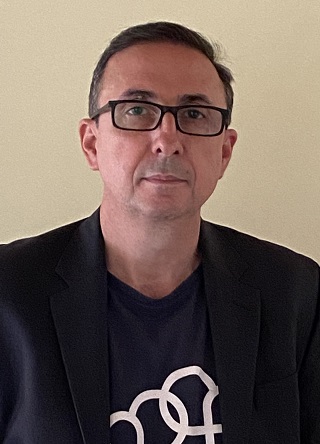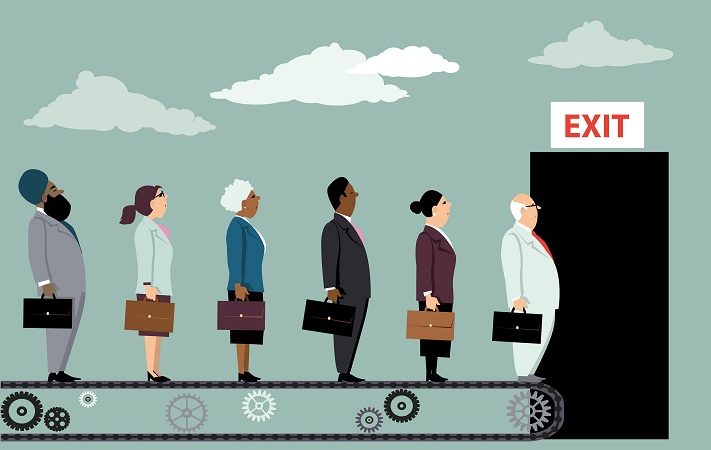Recent workforce studies across the world highlight a considerable shift in employees’ attitudes towards work, brought about by the COVID-19 pandemic – including the hotly debated ‘quiet quitting’ trend.
ISACA’s new white paper, The Great Resignation: Business Challenges and Sustainable Solutions, discusses the reasons for The Great Resignation, the difficulties it creates for enterprises and recommendations for developing a sustainable, multi-purpose workforce-management solution.
In the wake of the COVID-19 pandemic, increasing turnover is a global concern and a major risk to the sustainability and resilience of many enterprises worldwide. Enterprises must take immediate action to become flexible with responses to employee demands, allowing more flexibility for working from home and balance between work and life commitments when returning to work after the pandemic.
ISACA’s white paper delves into the components of operational resilience and different types of risk that The Great Resignation has introduced, including productivity loss, poor customer service as well as reputational and information risk. When addressing the challenges caused by The Great Resignation, the organization suggests keeping the following in mind:
- Adaptability is essential: It is hard to predict exactly the skills that will be needed even five years from now, so workers and organizations need to be ready to adapt to any of the worlds envisaged.
- Focus on employee value: The risk of losing critical people to burnout or early retirement will be a constant concern; organizations need to pay careful attention to the employee value proposition.
- Adopt a phased approach to solutions: Although problems caused by The Great Resignation are pressing, they should be solved using a phased approach to avoid sudden changes overwhelming staff.
ISACA’s paper shares several sustainable solutions to workforce issues, including:
- Strengthen innovation, creativity, empathy and leadership capabilities in the business alongside critical technology skills
- Build and nurture adaptability in the enterprise workforce by harnessing a flexible talent mix, new ways of working and learning and providing radically different career paths
- Build a future-looking understanding of how humans and machines can collaborate to deliver the enterprise’s purpose
Guilherme Pessoa, CEO and Founder, Dattos

The technology market has rapidly grown in recent years. As a leader of an accounting automation software company, I have seen up close the opportunities that this has generated for professionals, especially when it comes to the possibility of remote work.
Although this movement in the market can have a positive effect on the economy and company growth, it can also have some collateral effects, especially when it comes to retaining experienced employees and dealing with the natural competition in the market.
This mass departure of employees, known as The Great Resignation, is a challenge for all of us, especially for those companies that have not been able to adapt to the hybrid or remote model. It has not ensured a consistent change in their relationships with professionals, definition and record of vital operation processes accessible to everyone.
To face this challenge, I am sure that the ability to adapt with agility, combined with new strategies and processes that ensure that the company continues to operate efficiently, is necessary. It may include investments in training and personnel development to increase the technical knowledge of the team, automation of tasks to increase efficiency and reduce human errors, as well as the adoption of technologies that help to supplement skills and knowledge lost with the departure of experienced employees.
We also know that companies that invest in the training and development of their employees have significantly better performance than those that do not, so it becomes necessary for us to work on these aspects to ensure long-term success.
Lívia Brandini, CEO and Founder, Kultua

In conversations with technology directors, CIOs and CTOs, it is possible to see that the vast majority of organizations are trying to mitigate the impacts caused by the high turnover of employees seeking increasingly flexible work models or 100% remote work. To some extent, this symptom is also related to The Great Resignation movement that occurred in Brazil, even on a smaller scale than in the US or China phenomenon.
Globally, The Great Resignation gained strength during the pandemic and reflects a large set of questions about work and the chosen company from dissatisfied employees who are facing: Psychological insecurity, divergent management views, lack of listening or space for improvement suggestions and rigid processes and policies.
Compared to the effect of this global movement with the Brazilian one, the difference is that, in Brazil, it is more restricted to a small group formed by young people, generally with higher levels of education and these people are usually associated with activities that do not require face-to-face work. In the US, the movement was more evident and more complex.
Therefore, a trend emerged in IT teams to prefer remote work. After all, we have seen examples of large companies releasing their employees and declaring themselves 100% remote.
As a result, part of the team moved to more distant cities, which means they adapted their lives because of this decision. After that, declaring hybrid work mandatory for 100% of the team was no longer an option.
Aiming to mitigate the challenges of retaining people, companies have been seeking increasingly creative solutions, from encouraging non-mandatory face-to-face ceremonies in smaller headquarters to online events with teams such as games, casual chat and other integration dynamics.
In addition, there has been greater awareness of the strategic role of HR and humanized management, leading companies to have closer and personalized monitoring of employees. In this sense, solutions and platforms capable of collecting data or people analytics in depth stand out, whether for a better understanding of the individual or the relational patterns that influence the company culture.
An example of this is our culture and change management diagnostic platform. We help companies understand their actual critical challenges and adopt more accurate strategies to improve their engagement and retention, leveraging the installed culture and business results.
Luiz Cesar Baptistella, CEO, Aoop Cloud Solutions

This job-switching movement or a high volume of resignation requests, better perceived in recent years, is already a well-known practice in the IT sector. Obviously, some factors have contributed to further accelerating this process.
One is hybrid or remote work, which has accelerated due to the pandemic. Today, we can consider this a crucial factor in this acceleration. People want more time with their family or work from anywhere, without the need for daily commutes to the office.
Another factor that has influenced this is the large number of job offerings in the software and Information Technology areas due to the scarcity of specialists in some technologies and the increasing digitization of services in companies.
Another aspect is the search for personal identification with the company purpose. That is not just about higher salaries and better benefits but also meeting personal aspirations and objectives aligned with the mission and purpose of the company. We even observe many professionally trained and experienced professionals in the process of transitioning their careers.
I observe that The Great Resignation happens more strongly with more experienced professionals, with better professional training and higher salaries, especially in the tech world. In other words, this shows that people are valuing personal satisfaction, purpose, recognition and a healthy work environment more and more, often at the expense of high salaries.
In our company, we have known this market movement since its inception and have already been exercising and living in this context daily. We are constantly concerned with providing a professional environment.
To do this, since 2019, we have been working in remote mode. We have perfected our controls and officially established this policy for the entire company today. One hundred per cent of our professionals work within the ‘Anywhere Office’ concept.
We have also adopted a culture of constant professional growth and improvement. All of our collaborators receive a training track to follow throughout the year from their first day. In addition, we created a training and professional development academy – called Shark Academy – with technological training for our professionals and the entire ecosystem.
Click below to share this article

